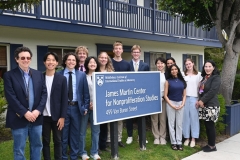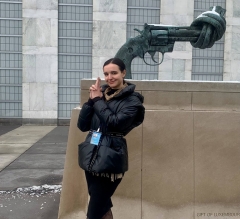Event Commemorating 80 Years of the Nuclear Age Will Feature Those Impacted, Former Officials, and Youth
| by Angela Izi Nkusi
On August 6, 2025, the James Martin Center for Nonproliferation Studies (CNS) is hosting an event to commemorate the 80th anniversary of the nuclear bombing of Hiroshima and Nagasaki, honoring and elevating the voices of people impacted by nuclear use and testing.





